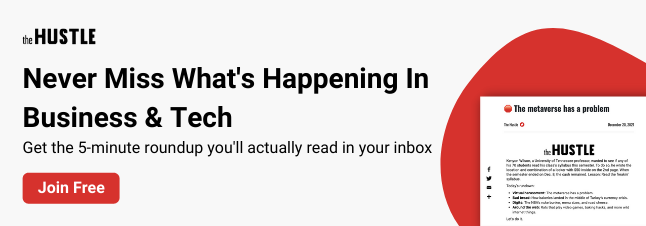Quiet quitting, quiet hiring, Bare Minimum Monday, the Great Resignation… whether you’re scrolling through social media or brewing coffee in the office lunchroom, corporate buzzwords seem nearly unavoidable.
But why are we suddenly naming every workplace phenomenon? And, more importantly, is it changing the way we feel about our jobs?
To find out, we surveyed 200+ full-time employees on the proliferation of trending terms about work, and how those words did — or did not — affect their decision-making or outlooks.

The majority of respondents had heard of “quiet quitting” (69%), followed by “act your wage” (44%), “Great Resignation” (39%), and “Bare Minimum Monday” (37%).
Other surveyed terms included "quiet hiring," "career cushioning," and "rage applying."
As for where professionals hear these terms: 44% reported that these buzzwords are being used in their office.
Speaking about work in a new way makes sense after the covid pandemic, where most professionals experienced drastic changes to where, how, and when they worked.
Long commutes turned into working from bed, and constant work travel shifted to a never-ending stream of Zoom meetings. So it’s logical that in all of that flux, some took a step back from their careers to begin asking deeper questions about corporate America.
“These trends were very likely there before, but I think the pandemic has uncovered and brought things to the surface that we didn’t pay attention to or have the opportunity to talk about,” says Susanna Gallani, an assistant professor of business administration at Harvard Business School.
Gallani says that the pandemic gave workers the time they needed to reflect on all aspects of their careers, from what drives them to go to work each day to what they want out of the relationships with their employers.
One survey respondent agreed, saying they’d participated in the phenomenon dubbed the Great Resignation after the pandemic’s onset: “I decided to resign from my job during the pandemic. I lost people to covid, and it made me want to move closer to my remaining family.”
Of those surveyed, 32% said workplace terms have influenced their actions or decisions in the workplace.
A common theme in the responses: Many employees said they’ve made decisions in the workplace related to the trending term “act your wage,” and have refused to take on more work without additional compensation.
“I work my wage because I do not care about my job and it does not care about me,” wrote one employee.
“I know what I’m worth, and this trend encouraged me to relax and demand a better job,” wrote another.
It’s nearly impossible nowadays to have a conversation about trending language without talking about social media. The concept of quiet quitting itself is said to have originated on TikTok.
The hashtag #quietquitting has racked up 814.9m views on the app so far, with #actyourwage totaling 494.6m views and #greatresignation with 274.2m to date.
Between time spent working in the office and time spent at home scrolling through socials, employees quickly internalize the newest buzzwords being thrown at them.
Along with co-workers, social media platforms and media outlets were where employees reported hearing these terms for the first time.

Many employees wrote that these newly coined workplace terms have validated their feelings, whether they felt frustrated, burned out, or exploited.
“I think the introduction of these terms has changed my outlook on work by normalizing workers’ feelings around being overworked and underpaid, making me realize I am not the only one feeling this way and that workers can have more of a say in their jobs,” wrote one employee.
Terms like “quiet quitting,” “Bare Minimum Monday,” and “act your wage” all have one main component in common: apathy. And that emotion came up continually in employees’ answers.
“My outlook has gotten more logistical,” wrote one employee. “I should be paid for the quality and quantity of my services.”
This apathy is something that corporations and managers in particular will need to address by instilling more value in their employees’ roles, whether through financial incentives or other desired modifications.
“I believe we are in a workforce crisis,” says Gallani. “We’re experiencing an inflection point in the preferences of the workforce and in the availability of people to be working for us. The main role of the manager is to put the people that work for them in the best position to do their best work.”
Gallani notes that managers must address these trends as they arise, but that they need to personalize this process for different age groups of workers. The workplace now has employees ranging from Gen Z to baby boomers, each with unique sets of preferences and needs.
Only 14% of employees reported hearing these terms from executives at their companies, while 64% said they heard them from co-workers.
Managers will also need to combat the anxiety that can stem from the spread of these terms. When Bare Minimum Mondays entered the lexicon, some employees became nervous that the practice would become an assumption.
“I try to avoid any potential appearance of the negative trends by being more present and visible, especially when working remotely,” wrote one employee. “I also try to push people under me to do the same.”
While they can be empowering, terms about work can also backfire when put in the wrong hands and used as false proof for underperformance.
All is not lost, though, and trending corporate terms might even have some positive effects on the workplace, with 74% of employees saying the buzzwords have made a more open and communicative work environment, allowing them to understand their colleagues better.
More than anything, it seems these terms are simply labels we put on realities that seem too overwhelming or opaque to otherwise speak on, and there’s value in being able to articulate those issues in the hopes that we can one day resolve them.
Plus, we need something to write to our co-workers on Slack.





